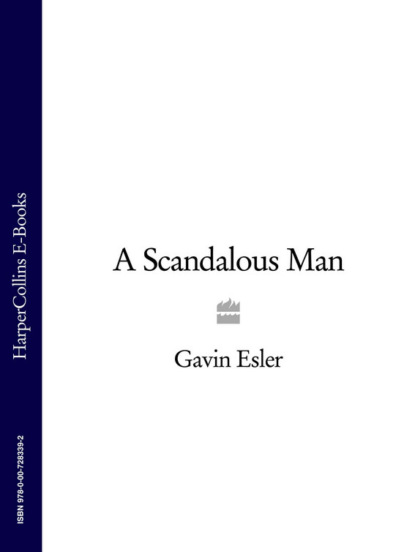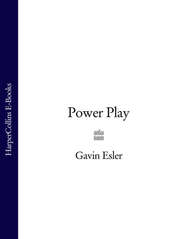По всем вопросам обращайтесь на: info@litportal.ru
(©) 2003-2024.
✖
A Scandalous Man
Автор
Год написания книги
2019
Настройки чтения
Размер шрифта
Высота строк
Поля
‘Most likely attempted suicide,’ Harpenden interrupted. ‘That’s what we’re hearing from Gloucester. No signs of breaking and entry. No signs of a struggle. No evidence to the contrary. But we’re keeping an open mind, know what I mean?’
Harry said nothing. The whisky and the early wake-up call from the spiky-haired girl had got to him. He wasn’t sure exactly when it was that he decided not to trust the detectives. It was simply a matter of instinct. He would tell them as little as possible. A line of Seamus Heaney poetry kept buzzing in Harry’s head.
‘Whatever you say,’ Heaney wrote, ‘say nothing.’
He was not going to mention the girl, the laptop or the photograph with Leila Rajar. Say nothing.
‘Shall we – um – get on, then, Mr Burnett?’ Detective Sergeant Sylvester said, still looking him over as if he sensed that Harry was about to lie to him.
‘Of course. How can I help?’
‘Maybe just answer a few questions and let us poke around a bit?’
‘Of course,’ Harry repeated. ‘But I don’t understand what we’re all doing here exactly.’ Harry turned to Donald Sylvester. ‘I mean, if it’s not attempted murder, then is there a crime? And if there’s no crime, why is there an investigation?’
‘Well, we – um,’ Sylvester hesitated. ‘Like Steve said, we don’t think there’s a crime, but we have to tick all the boxes.’
Harry smiled.
‘So you’re not going to charge my father with wasting police time if he lives?’
‘Just a precaution really, sir,’ Sylvester began to explain. ‘Bearing in mind your father’s – um – high visibility. We need to be seen to cover the ground. Your father attracted … a lot of attention … some of it – um – undesirable.’
‘But you really don’t think that someone tried to …’
His voice trailed away as he gestured round the apartment with his hand.
‘Did you know of anyone with a grudge against your father?’
‘No.’
‘Did you know of anyone who would want to harm your father?’
‘No.’
‘Did you know of any threats to your father of any kind?’
‘No.’
‘Do you know of any reason why he would kill himself?’
Harry shook his head.
‘And do you think he is capable of committing suicide?’
‘I have no idea what he might be capable of,’ Harry said. ‘He was a stranger to me, as I told you on the phone. Was there a suicide note?’
Sylvester looked back at him.
‘No. Or at least, no one has found one. Did you find anything here?’
‘No.’
The detective was just over six feet tall but Harry was even taller. They stared at each other.
‘What are the police in Gloucestershire saying?’
‘Things point to a – um – self-induced drugs overdose and self-inflicted wrist wounds,’ Sylvester said flatly. ‘The cuts were at the correct angle for self-harm. Was your father left or right handed?’
That caused Harry to pause.
‘Right handed,’ he replied. ‘I think.’
Sylvester nodded.
‘You don’t sound so sure.’
‘I haven’t seen him in years.’
Detective Sergeant Sylvester couldn’t read the emotions in Harry’s eyes, but he knew what he was not seeing. Grief.
‘Are you in the politics business yourself then, Mr Burnett?’ Harpenden wondered.
‘Politics? No,’ Harry protested and then grinned. ‘Well, not really.’
‘Not really?’
‘I work as a volunteer for my constituency Labour party in Fulham, if you consider that the politics business. We have a local joke: Are you a member of an organized political party? No, mate. I’m Labour, me.’
Sylvester smiled, surprised.
‘So you’re not – um – Conservative like your …?’
He did not have to complete the sentence. And Harry did not have to reply. He wondered whether the detective’s occasional stammer gave him a second to think.
‘I am the opposite of my father in many things,’ Harry responded eventually. ‘I am pleased to say.’
‘But it’s not your job, politics?’ Harpenden repeated, as if asking the same question in different ways might produce a different answer.
‘No,’ Harry said firmly. ‘Just a hobby. On the grounds that if I don’t help elect the people I want to run the country, some other person will. By profession I’m a translator.’
‘An – um – interpreter?’
‘No, well, I do a little interpreting but mostly I’m a self-employed translator.’
‘It’s all languages, isn’t it?’ Harpenden said.
‘Yes, but an interpreter lives for the moment, switching between languages. A translator works with books or documents. That’s my line. They are different skills.’






